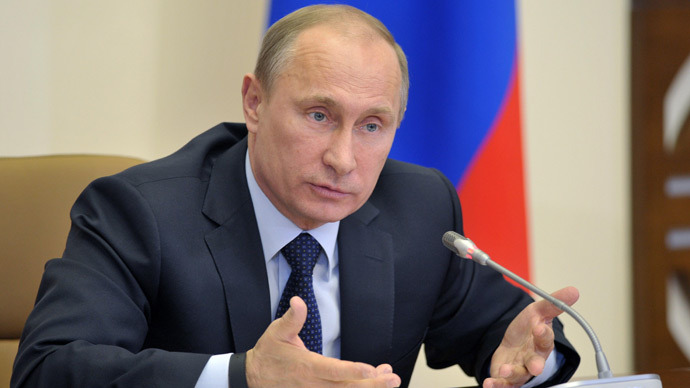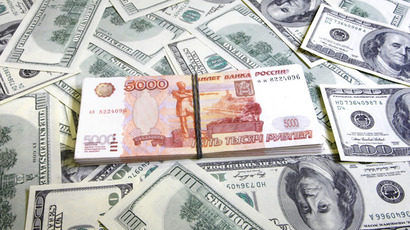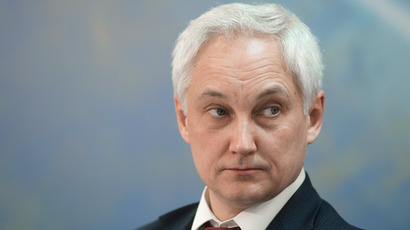Putin announces stimulus amid recession anxiety

Russian President Vladimir Putin is calling for stimulus spending on the back of poor economic forecasts and a slump in the markets.
Putin hosted an unprecedented meeting at the Kremlin with government officials and economic experts to address the fiscal hurdles ahead.
“The global crisis is acquiring an increasingly dangerous shape, which inevitably affects us as well," Putin said at a meeting with Prime Minister Dmitry Medvedev on Monday, comparing the gravity of the situation to 2008 crisis-mode.
"Economic growth somewhat slowed down, which further reduced the real economy," Putin noted.
The recession "is reflected in the population's income, wages are less, but total estimated income remained unchanged," according to Putin.
Russia has incurred a wage drop, but figures were above projected levels, which is reason for officials to remain optimistic, drawing attention to the mining sector, which increased 2.6% last month, and is expected to continue its ascent.
"The mining sector began to recover, that is, in principle, a good signal at all for our country," Putin said. As a baseline indicator, an increase in extractions is a positive strength signal for the Russian economy.
Putin has acknowledged the lagging global crisis, but has also suggested that Russia is an anomaly to the surrounding stunted growth.
“In contrast to our friends and partners in Europe and other regions of the world, the Russian economy demonstrates the viability and feasibility of further development,” said Putin.
Tuesday’s special meeting was largely a response to Economic Minister Andrey Belousov’s warning on Friday that Russia risks sliding into recession if it doesn’t pump roubles into the economy.
“Measures must be taken urgently, because we need to get out of the situation we are in now in order to avoid a recession,” Belousov said.
Oil economics
Russia’s $2 trillion economy is growing at its slowest rate
since the onslaught of the 2009 European debt crisis. Europe is
currently the biggest importer of Russian energy, and as they dip
deeper into recession, the demand for Russian resources falls. The
very strong decline in energy exports has prompted Russian energy
companies to cut investment thus weakening the country's GDP.
Energy magnate Gazprom plans to cut capital expenditures by 35%
this year, according to its deputy head, Andrey Klepach.
Russian GDP is expected to contract in 2013, only increasing by
2.4%, according to the Economy Ministry, a
downgrade from the earlier projected 3.6%. Both figures are far
below Medvedev’s 5% target.
Capital investment has fallen from 6.5% to 4.6%. Russia has
struggled to keep foreign investment: $1 billion fled the Russian
market in the first quarter. High interests rates, coupled with
risk, deter both foreign and domestic investment.
Vladimir Tikhomirov, chief economist at Financial Corporation
Otkrytie told NEWSru that Russian assets are risky, and if
oil prices fall, the Russian government will either need to
dramatically increase foreign debt, or tap into the Reserve
Fund.
Lower crude oil prices also put the rouble at risk. If oil stays under $100 per barrel, the rouble may drop to 32 to 32.5 against the dollar, Dmitry Savchenko, a business analyst at Nordea Bank, told Vedomosti.
Medvedev will give an economic follow-up report on April 17.














